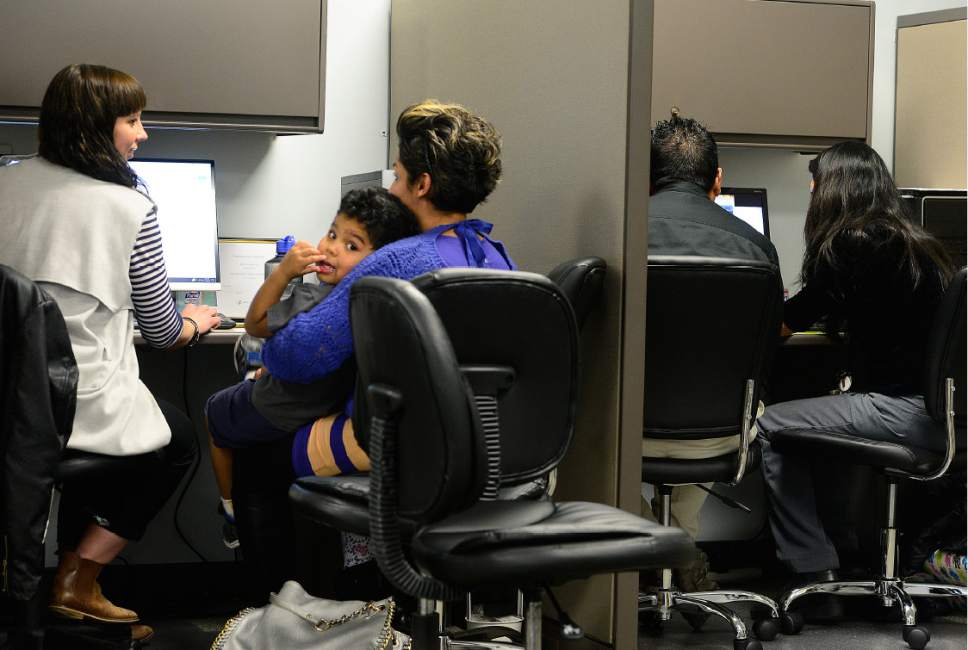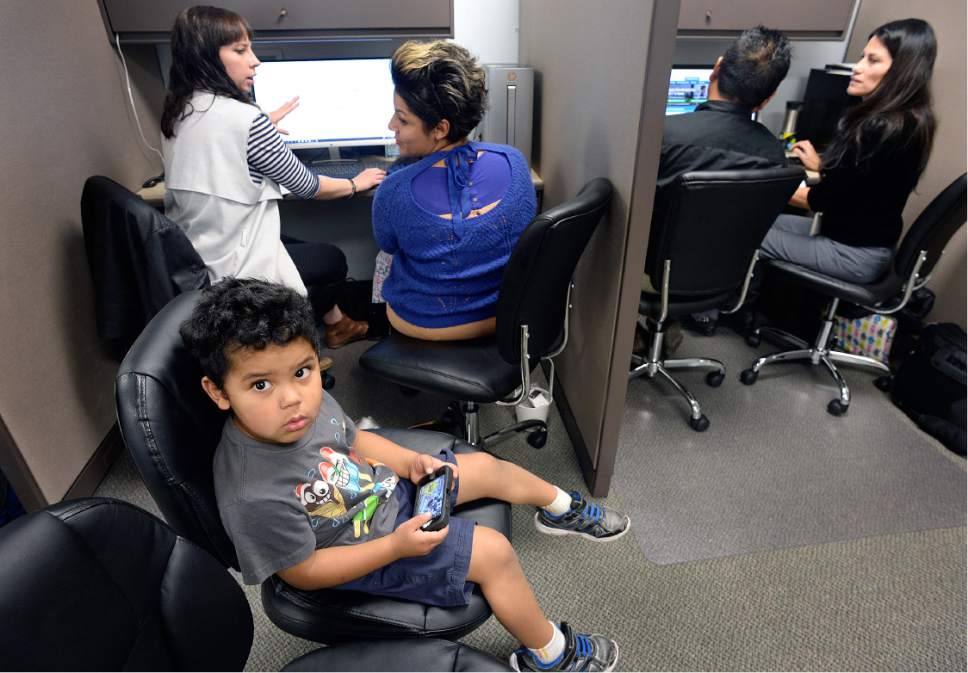This is an archived article that was published on sltrib.com in 2017, and information in the article may be outdated. It is provided only for personal research purposes and may not be reprinted.
Latino leaders say Republicans' "short-sighted" proposal to replace the Affordable Care Act would cause millions of members of the Hispanic population to go uninsured.
The GOP's plan, dubbed the American Health Care Act, would nix a legal requirement for people to have insurance and give more flexibility to insurance companies, likely lowering the quality and types of coverage available for low-income families, said Hector Sanchez, chair of the nonpartisan National Hispanic Leadership Agenda (NHLA), during a telephonic news conference Wednesday morning.
Without proper coverage, Sanchez said, a single illness could cause people to go bankrupt.
The NHLA "stands united in opposing" the deal, he said.
Low-income Latino seniors, children and women would be particularly vulnerable under the new bill, said Janet Murguia, co-chair for the NHLA Economic Empowerment and Labor Committee. Premiums for people older than 65 would also increase to five times the amount of premiums for younger adults, said Dr. Elena Rios, co-chair of the NHLA Health Committee. Under the Affordable Care Act, seniors pay three times the amount, she said.
"The House GOP plan to repeal and replace the Affordable Care Act is bad medicine for our children and families," Murguia said. The bill would "put health insurance out of reach for millions of working families in order to provide even more benefits for the wealthier Americans."
Statistics from the Utah Department of Health show that from 2000 to 2015 (before Affordable Care Act enrollment campaigns), the number of uninsured people in the state's Hispanic community had grown to 32.7 percent, significantly higher than the 12.7 percent of uninsured Utahns in the general population.
Many members of Utah's low-income Latino community appear "hesitant to apply" for government-sponsored healthcare because they "don't know what's going to happen and don't really understand what this new plan implies," said Alejandra Palomino, preventative health manager for Comunidades Unidas.
A study published last year showed Utah as the state with the highest percentage of Latino children who qualify for Medicaid or Children's Health Insurance Program (CHIP), but are not enrolled, Palomino said, adding that 23 percent of Hispanic children in Utah lack coverage, compared to 9.7 percent at the national level.
"We're afraid that is something we're going to continue to see," she said.
Comunidades Unidas has been working with other nonprofit organizations to try to educate the population on what resources are available to them, Palomino said. The group has also been collecting personal stories of how Affordable Care Act health coverage has affected Hispanic Utahns and hopes to set up a meeting with Gov. Gary Herbert to discuss the situation, she said.
Across the nation, more than 4 million Latino adults and 600,000 Latino children gained health coverage from 2013 to 2015, Murguia said, and the overall Latino uninsured rate declined to 16.2 percent of the Hispanic population. She fears the proposal would wipe away "historic gains" in coverage that have occurred in recent years.
"We should not go backward," Murguia added.
Under the GOP bill, individuals would buy insurance plans with cheaper premiums that do not include essential benefits, Rios said, so they will end up paying out of pocket for dental, vision, mental health and other types of care.
The proposal, which President Donald Trump supports,is "not a good trade," Murguia said.
Sen. Mike Lee has expressed his opposition to the bill, stating to The Tribune last week that the proposal "is a missed opportunity and a step in the wrong direction."
When asked specifically about Utah's Hispanic population, Lee's spokesman Conn Carroll said in an email Wednesday that the senator "thinks of all Utahns equally" when considering policy.
Other Utah Republicans, including Sen. Orrin Hatch, have expressed support of the bill. Hatch's office did not respond to a request for comment Wednesday afternoon.
Twitter: @mnoblenews





